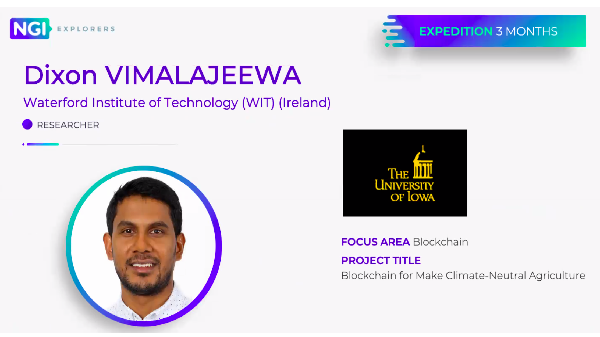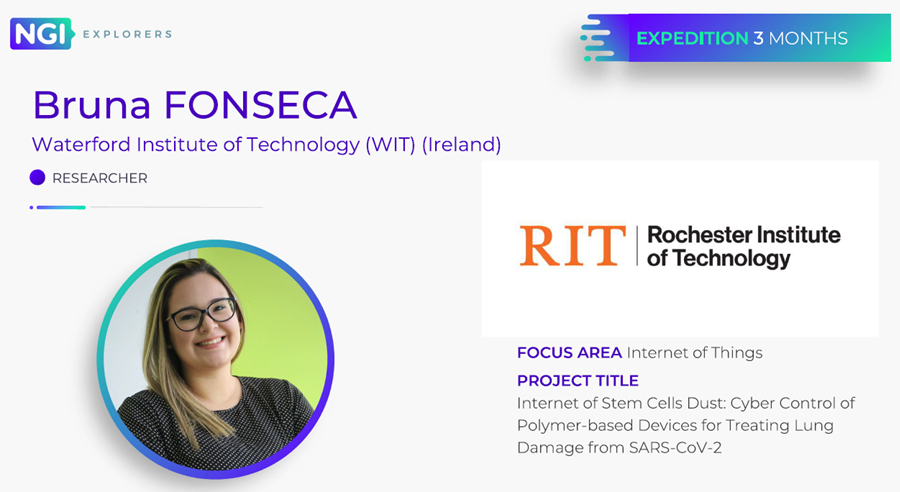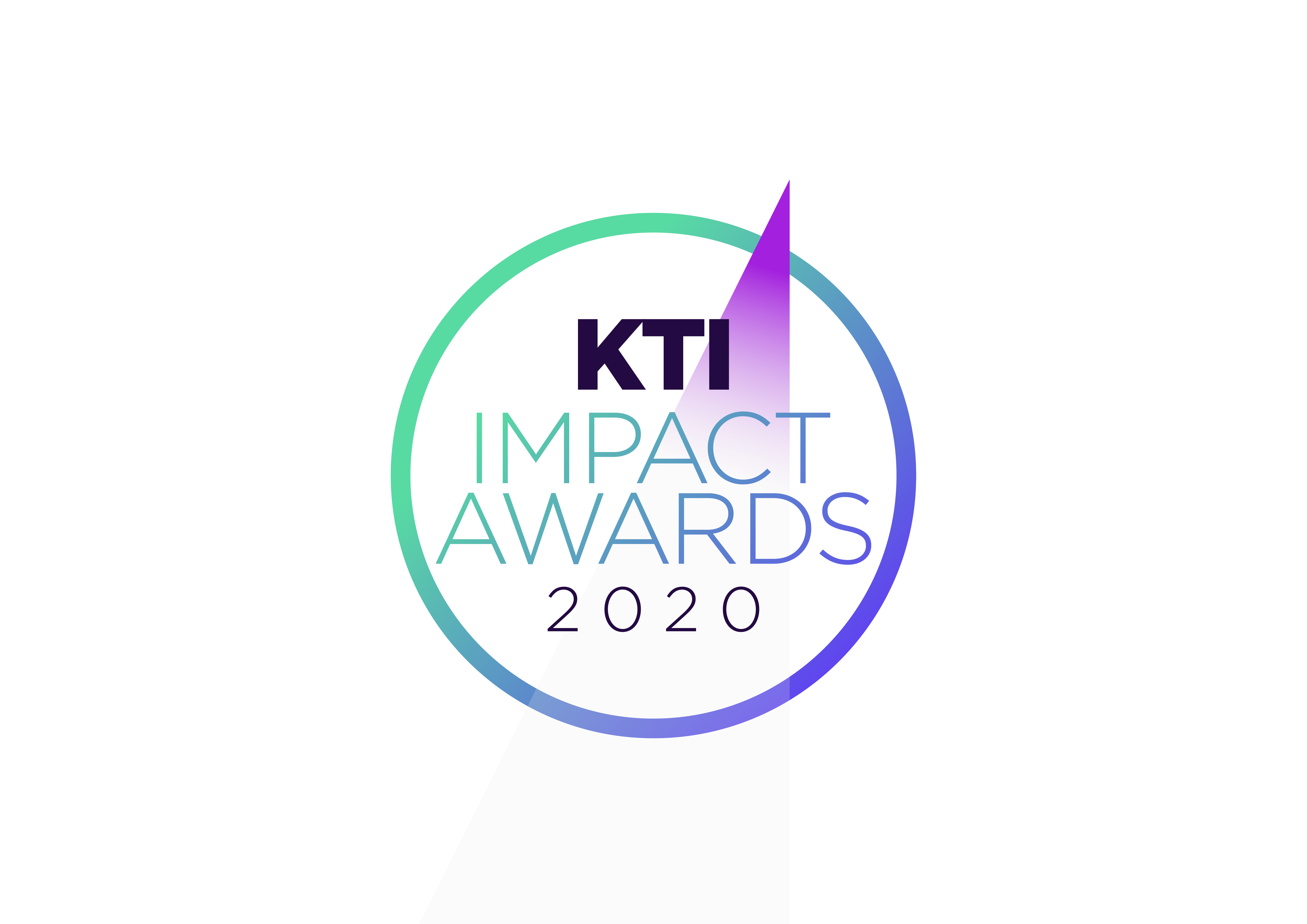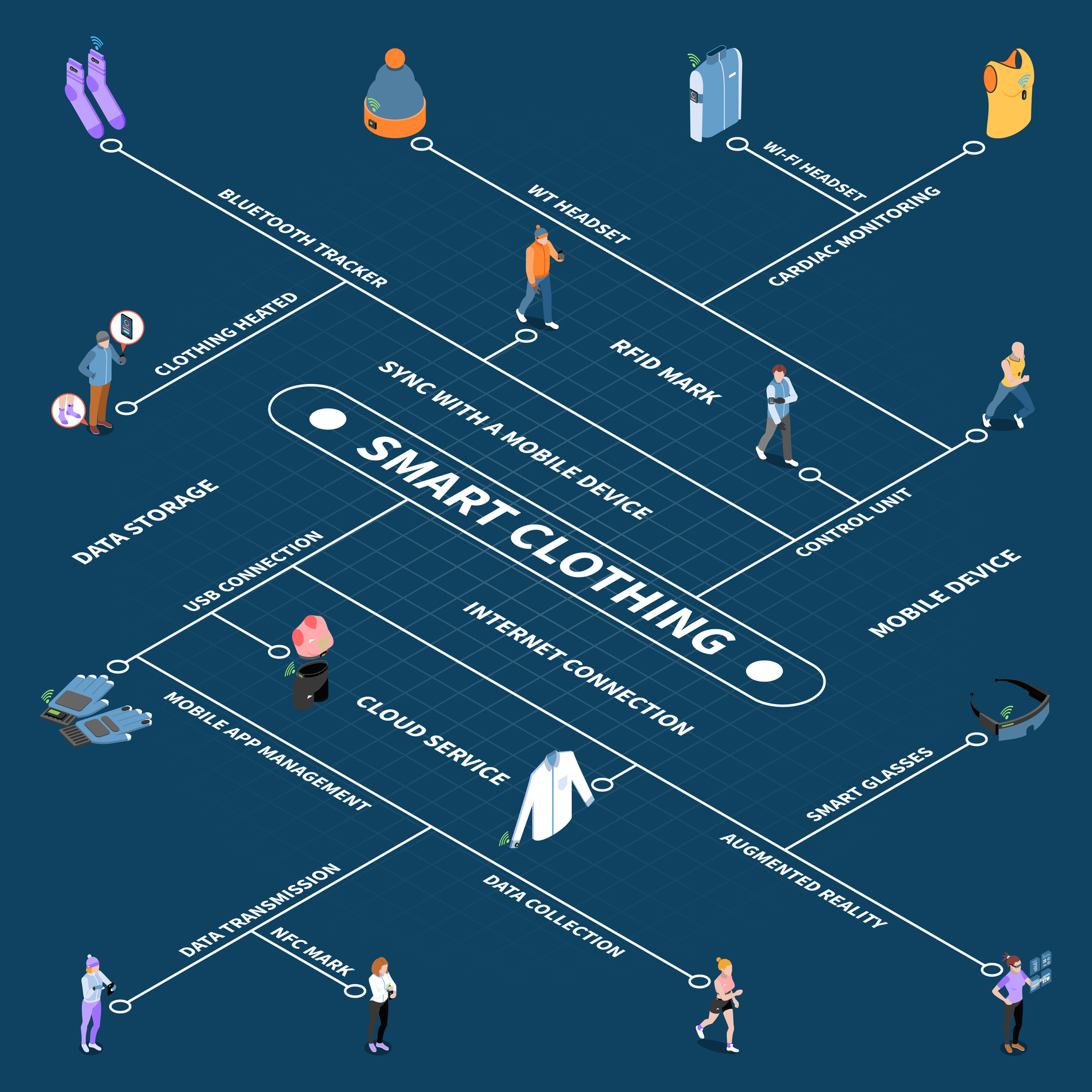Two researchers in WIT will embark on a three month visit to international Universities
Tags:
Bruna Fonseca and Dr. Dixon Vimalajeewa, both from the Telecommunications Software and Systems Group (TSSG) in Waterford Institute of Technology (WIT) have been awarded funding for research into the Internet of Things area from the NGI Explorers program.
In TSSG, exploring novel and effective communication techniques is one of the main research areas and WIT makes a significant contribution to a number of ongoing project in this discipline such as SFI Vistamilk Research Centre which aims at digitalizing dairy farming sector. A number of ICT experts in TSSG are working in this area to develop novel solutions, for instance, effective mechanisms for efficient data communication.
NGI Explorers
The NGI Explorers program sponsors immersive missions to the United States for top European internet researchers and innovators, providing them with the skills, the network and the resources to accelerate their ambitious ideas. The program seeks to empower these change-makers to position Europe into the powerhouse of the Next Generation Internet.”
PhD student, Bruna Fonseca, will travel to the Rochester Institute of Technology (RIT) and will be mentored by Dr David Borkholder, the Bausch and Lomb Professor of Microsystems Engineering at RIT, and Dr Vinay Abhyankar, Assistant Professor of Biomedical Engineering at RIT. The research will also be mentored by Dr Sasitharan Balasubramaniam, Director of Research in TSSG, Dr Michael Barros, Lecturer at University of Essex and Dr Mark White Vice-President for Research, Innovation & Graduate Studies in WIT.
Dr. Vimalajeewa will travel to the University of Iowa and will be mentored by Dr. Ibrhim Demir, Assistant Professor of Civil and Environmental Engineering at University of Iowa, Guilia Pastor, Project Manager at Australo, and Dr Sasitharan Balasubramaniam, Director of Research in TSSG.
Agriculture
 The carbon emission from the agri-food chain is one of the critical factors to the climate change as it is 20-25% of the global carbon emission. So, accelerating the development of innovative approaches for sustainable farming practices has already become the first priority in the agri-sector. Dr. Vimalajeewa explains how his project “We aim to identify how effectively can valuable insights available to farmers, consumers and retailers in the agri-food chain be used to operate more sustainable farming as they are significantly underutilized due to a number of reasons.”
The carbon emission from the agri-food chain is one of the critical factors to the climate change as it is 20-25% of the global carbon emission. So, accelerating the development of innovative approaches for sustainable farming practices has already become the first priority in the agri-sector. Dr. Vimalajeewa explains how his project “We aim to identify how effectively can valuable insights available to farmers, consumers and retailers in the agri-food chain be used to operate more sustainable farming as they are significantly underutilized due to a number of reasons.”
“Some of those reasons include limited opportunities to ensure the credibility of such knowledge sources and lack of motivational incentives for sharing their knowledge. Therefore, this project proposes a knowledge transfer platform using blockchain to enable sharing knowledge among such stakeholders in order to operate more sustainable farming practices and thereby, making a contribution to reduce carbon emission from the agri-food chain”.
COVID-19
Mrs. Bruna Fonseca NGI Explorer research will concentrate on the “Internet of Stem Cells Dust: Cyber Control of Polymer-Based devices for Treating Lung Damage from SARS-CoV-2”. She explains “with the current situation of COVID-19, several studies are being developed trying to help in the fight against the virus. And during our research, we found that researchers have been using  mesenchymal stem cells to treat lung tissue damage caused by the SARS-CoV-2. But recently it was discovered that depending on the size of the stem cells, administering them via the blood vessels can cause patients to suffer a stroke, due to the potential of larger cells blocking some vessels.
mesenchymal stem cells to treat lung tissue damage caused by the SARS-CoV-2. But recently it was discovered that depending on the size of the stem cells, administering them via the blood vessels can cause patients to suffer a stroke, due to the potential of larger cells blocking some vessels.
So, our project aims to create a polymeric nanodevice to encapsulate the stem cells small enough to prevent a stroke, and these nanodevices would be inhaled and implanted inside the lungs. Because of that, we will be able to apply internet of things concepts to control the nanodevice through an external ultrasonic system, that will control the release of the stem cells to the damaged tissues.”
Mrs, Bruna Fonseca added ” This type of approach would allow the treatment to be carried out more quickly and effectively, to increase the chances of survival of those patients who are in more severe stages of the infection and will help not only with the treatment of the COVID-19, but also with other respiratory diseases, giving rise to new treatment protocols for different types of infections.
Moreover, it will bring a novel utilization of a branch of the internet of things, that looks at the interface between the internet and biomolecular processes within the body.”
For further information on the “Internet of Stem Cells Dust: Cyber Control of Polymer-Based devices for Treating Lung Damage from SARS-CoV-2” research, visit https://wordpress.waltoninstitute.ie/2020/05/13/modelling-and-simulation-of-covid-19-viral-treatments/ and https://explorers.ngi.eu/meet-the-explorers-oc2 .
Both researchers are aiming to travel to RIT in early 2021 in line with government travel guidelines however contingent online arrangements will be arranged if necessary.
]]>




